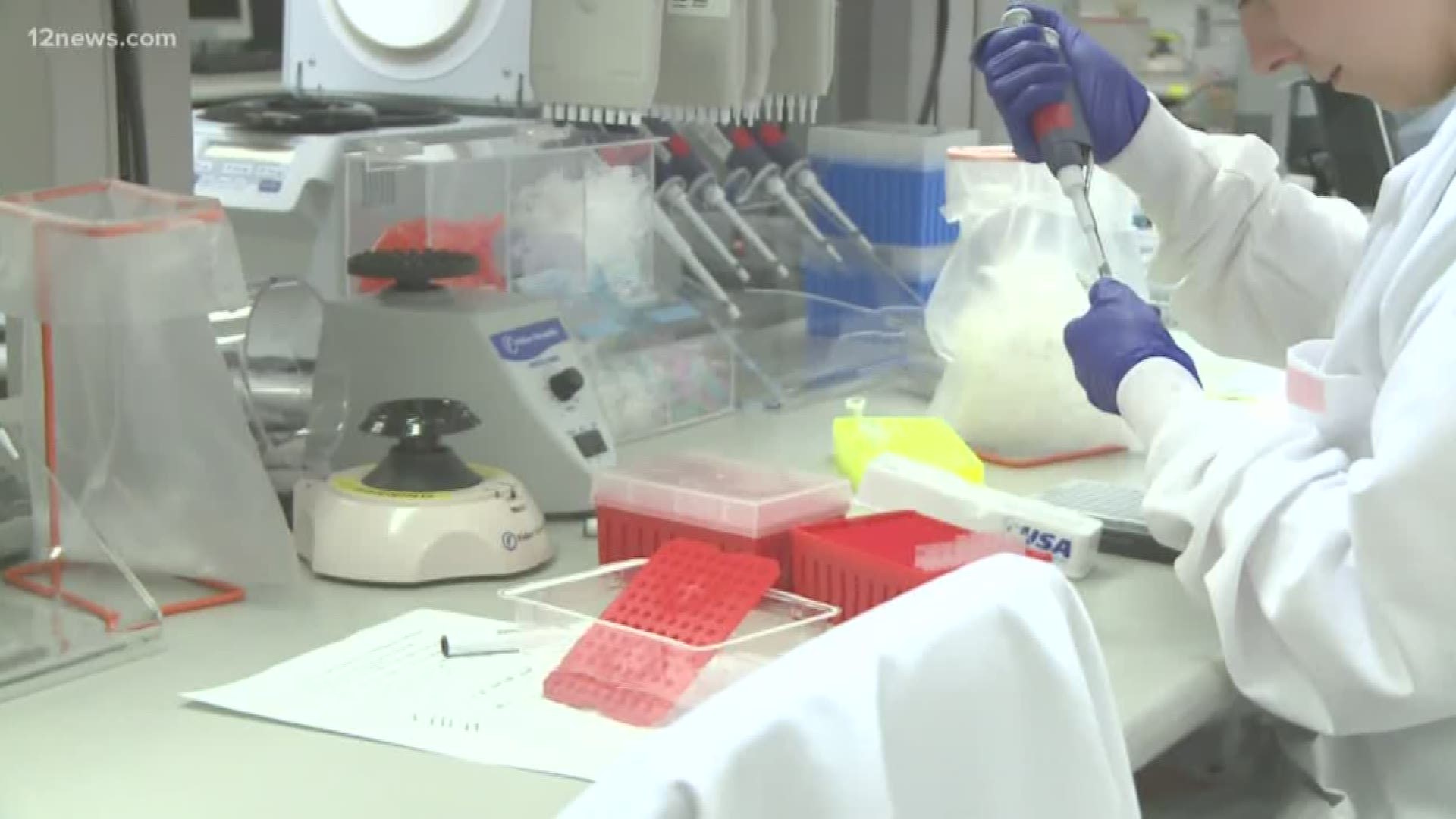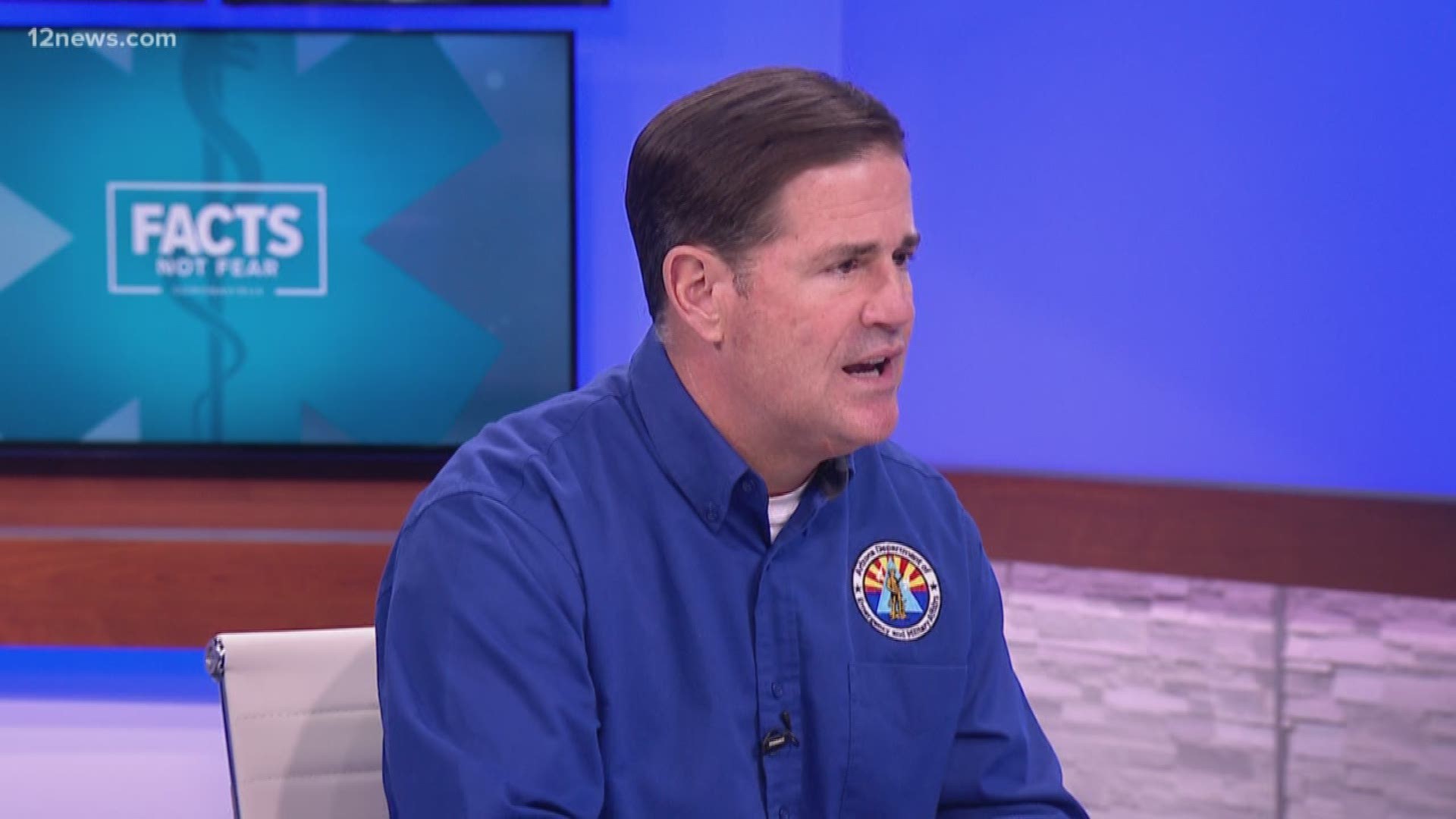PHOENIX —
Testing: it is a word we have been reading and hearing about a lot lately as our communities continue to fight the coronavirus.
The conversation around the popular topic is usually the lack of it. Arizona health officials say there are strict guidelines for who can be tested because of a shortage of the supplies used to collect specimens like swabs, tubes, masks and gloves.
“We need more, a lot more, and there’s not a governor in the country that doesn’t need more testing,” Governor Doug Ducey said during an April 14 press conference.
As of Monday, there were 54,500 tests completed, according to state data. Just over 10,000 tests have been conducted in the month of April so far.
Identifying who has been exposed to the virus is a vital step in efforts to stop the spread and ultimately begin easing coronavirus restrictions, experts say.
But why is testing a vital step?
University of Arizona assistant professor Janet Foote explained why testing for the virus is critical.
Though the number of completed tests continues to climb each week, it represents a very small fraction of Arizonans. Most Arizonans do not know for sure if they have been infected, if they have infected others, or if they are at risk of being infected.
“Testing – to determine who may have already had a case of COVID19, or been sufficiently exposed so one’s body produced an immune response – will help sort out when and who may be potentially safe to return to more normal activities,” Foote explained.
Without more people being screened for the virus, relaxing current social distancing guidelines could set us back and potentially cost more lives, Foote explained.
“With a highly transmittable disease such as COVID-19, we would once again be looking at potentially a huge number of cases and overloading healthcare resources,” Foote said.
Foote said administering tests can also lead to developing better tests and screening processes. Testing also contributes to creating vaccines.
“We want to continue to minimize cases and potential deaths as much as possible,” Foote said.
COVID-19 is believed to be primarily spread through coughs or sneezes.
It may be possible for the virus to spread by touching a surface or object with the virus and then a person touching their mouth, nose or eyes, but this is not thought to be the main method of spread, the CDC says.
You should consult your doctor if you traveled to an area currently affected by COVID-19 and feel sick with fever, cough or difficulty breathing.
There is no vaccine for the coronavirus, so the best way to prevent COVID-19 and other respiratory diseases is to:
- Avoid close contact with people who are sick.
- Avoid touching your eyes, nose, and mouth.
- Stay home when you are sick.
- Cover your cough or sneeze with a tissue, then throw the tissue in the trash.
- Clean and disinfect frequently-touched objects and surfaces using a regular household cleaning spray or wipe.
- Wash your hands often with soap and water for at least 20 seconds. If soap and water are not readily available, use an alcohol-based hand sanitizer.
You can text FACTS to 602-444-1212 to receive more information on the coronavirus and to ask questions.


